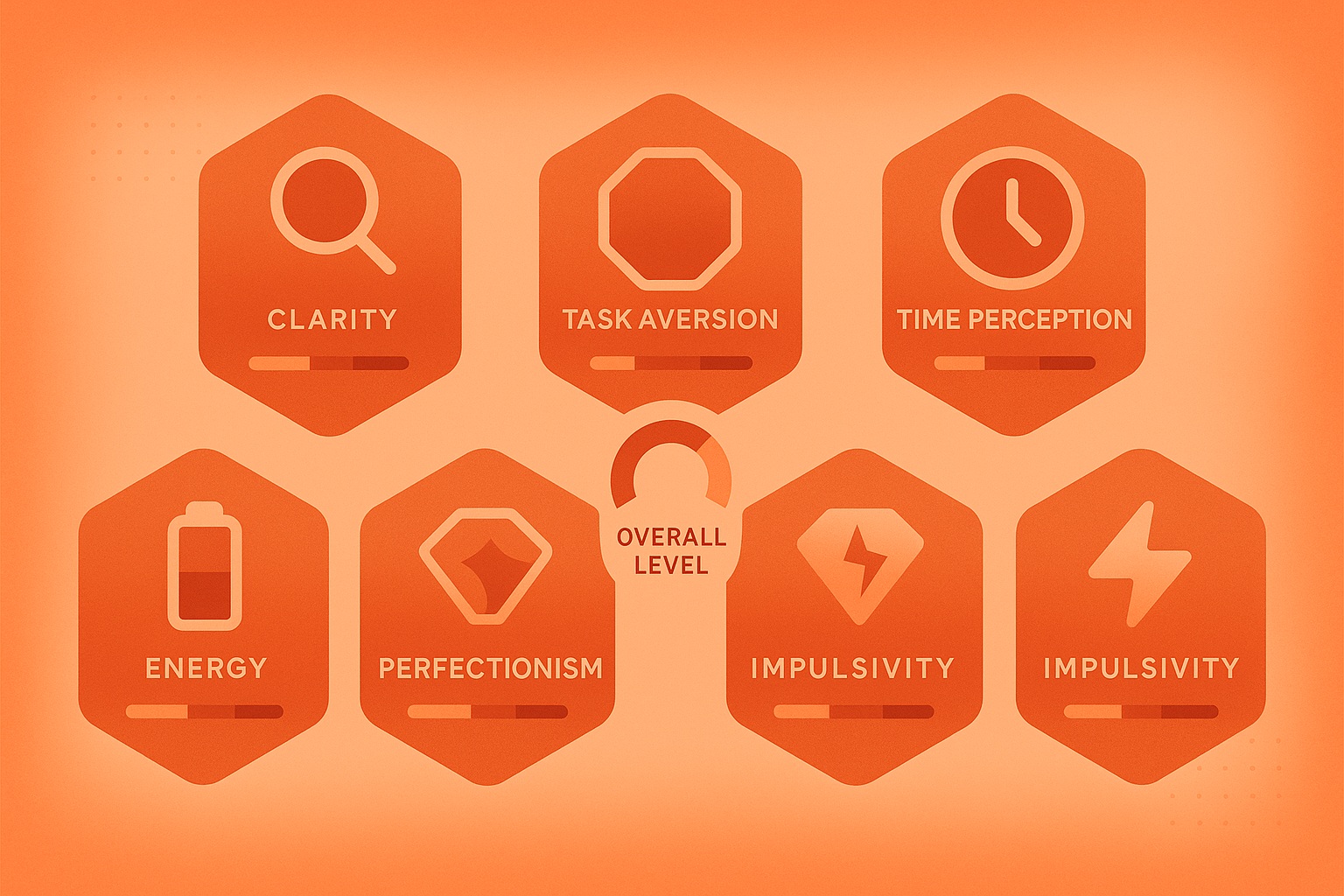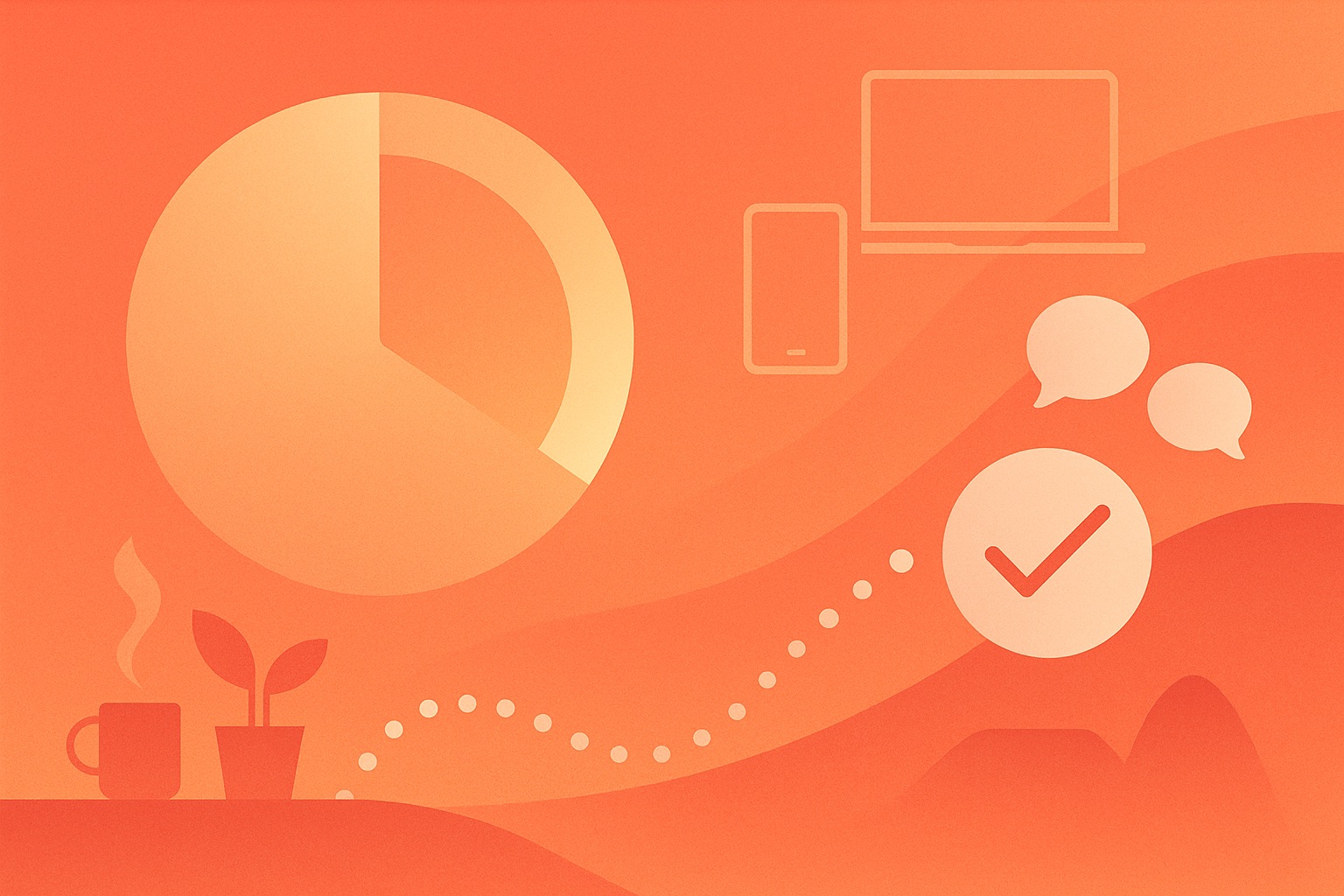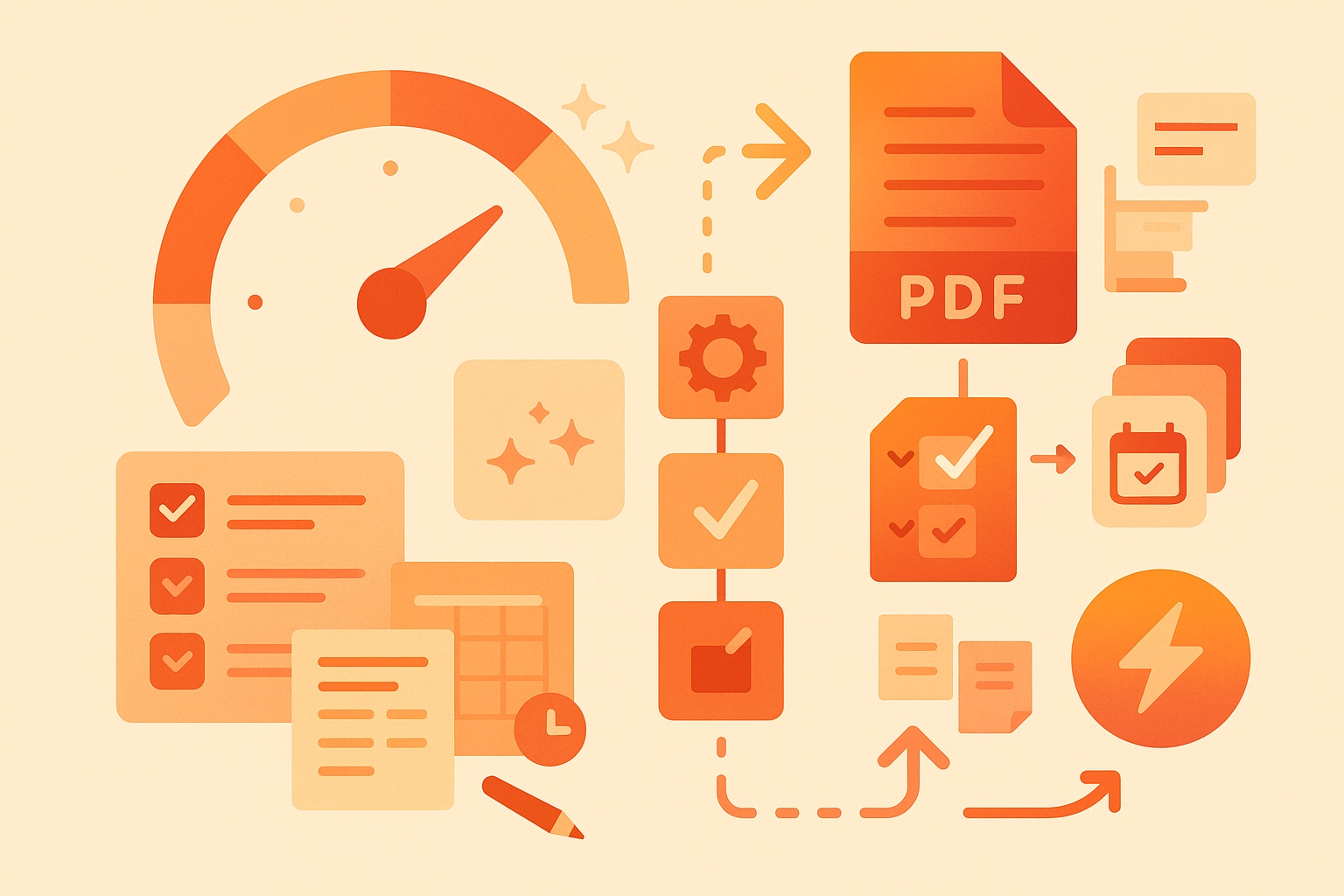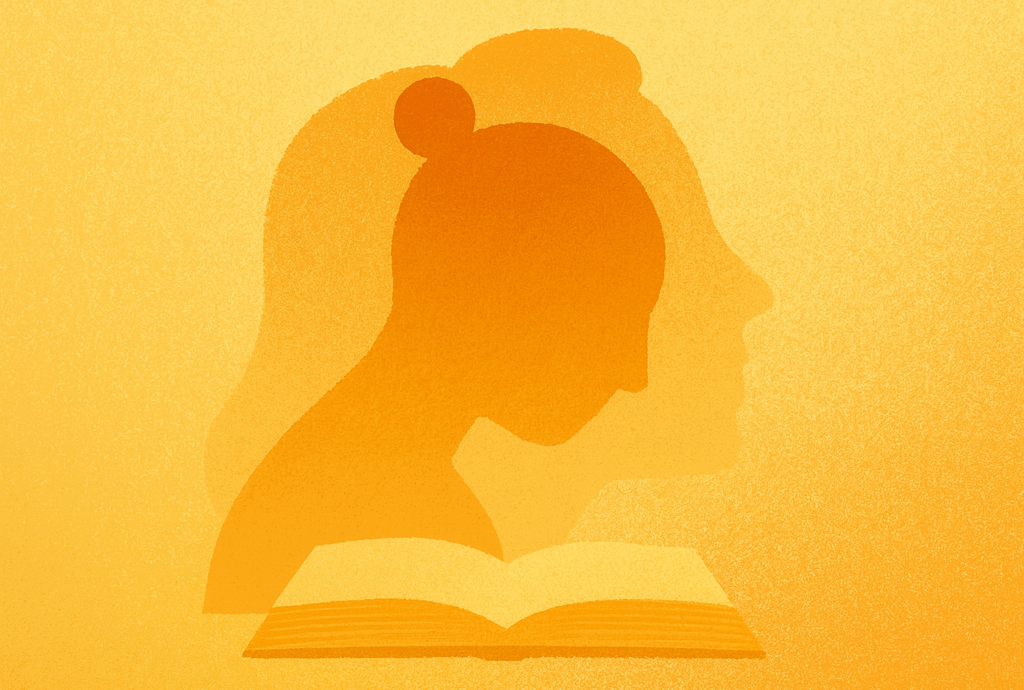Explore what might be delaying tasks — for example, task aversion, low clarity, perfectionism, time perception, or energy dips. See an instant overview to reflect on your pattern.
The full assessment offers an overview of patterns plus optional examples and prompts.
30 designed items consider six drivers sometimes linked with delays: clarity (how well tasks are defined), task aversion (how unpleasant they feel), time perception (estimating and planning), energy (available capacity), perfectionism (concern about imperfect outcomes), and impulsivity (susceptibility to distractions). Indicate how often each statement fits you to create a personal snapshot. Responses generate an overall level and a domain profile for educational insight.


Expect to spend about 5–7 minutes. There’s no countdown—move at a steady pace and answer based on your typical experience. The assessment works on phones, tablets, and computers using modern browsers. A quiet spot can help, but accuracy is more important than speed.
After completion, you’ll see an immediate summary of your level with a clear and accessible explanation of what it means. Your results not only highlight example routines and common strategies but also provide reflection prompts designed to help you connect the insights to your own daily experiences. The aim is to give you a balanced picture that feels both personal and practical, so you can recognize familiar patterns and consider new perspectives. Everything is carefully aligned to the response pattern you showed during the test, ensuring the feedback is relevant and meaningful to your situation.

Exploring more topics? Try our Personality test, Anxiety test, Burnout test, or IQ test.
Procrastination often reflects a mismatch between tasks and current conditions. This assessment highlights patterns—such as low clarity, low reward, perfectionism, or time perception—to give you a neutral framework for reflection.
Instead, choose a framework that helps you notice patterns and plan meaningful next steps.
Take the quick Procrastination Self-Assessment and get an instant read on patterns that may be getting in the way.
Start Procrastination Test
Note: This assessment provides educational insight and is not a diagnosis.